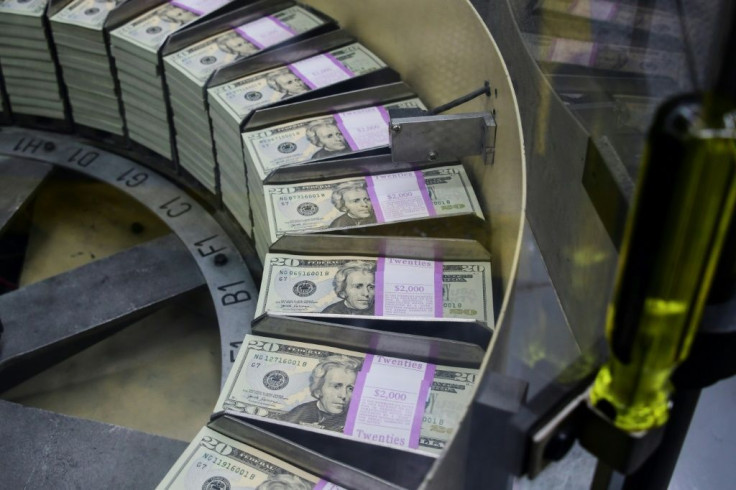Paychecks Are Getting Bigger, But Harder To Keep

Americans keep on receiving bigger paychecks, according to Bureau of Labor Statistics data released Friday. But it is getting harder to keep these gains due to rising inflation that makes it hard to afford the things they used to buy with smaller paychecks a year earlier.
Average hourly earnings for all employees on private nonfarm payrolls rose by 19 cents to $31.31 in December, ahead of market expectations of a 0.4% gain and in line with the November gains. For the past 12 months, average hourly earnings rose 4.7%.
The reason for the solid gains in American paychecks is a tight labor market, as evidenced by falling unemployment. The unemployment rate dropped by 0.3 percentage point to 3.9% in December.
That translates to a decline in the number of unemployed by 483,000 to 6.3 million. For the past 12 months, these figures are down by 2.8 percentage points and 4.5 million people. American companies have to pay up in the form of higher wages to find workers.
The trouble is that inflation outpaced the wage gains over the same period, meaning that working Americans are worse off in terms of buying power than they were a year earlier. The Consumer Price Index for All Urban Consumers, also known as the Cost of Living Indicator, rose 0.8% in November on top of 0.9% in October. For the past 12 months, the all-items index increased 6.8%. It's the highest inflation rate since 1982, and more than 2 percentage points higher than the December wage gains.
The inflation spike is primarily a food and energy problem. The food index increased 0.7% in November after rising 0.9% in September and October. The food-at-home index rose 0.8% in November as all six major grocery store food category indexes climbed. It was the third consecutive month that all six increased.
The energy index rose 3.5% in November after increasing 4.8% in October. The gasoline index rose 6.1% in November, at the same pace as the prior month. The index for natural gas jumped 0.6% in November following a 6.6% increase in the previous month.
Food and energy get a big chunk of low-income households' spending budgets, meaning that low-income Americas find it even harder to keep their paycheck gains than high-income Americans.
The failure of working Americans to keep the paycheck gains they earn due to inflation is what economists call the "illusion of money." People have more money, which buys less than it used to. It shows the limitations of the Federal Reserve's policies that promote "maximum employment," one of the central bank mandates.
The fact that inflation hits the paychecks of low-income Americans more than those of high-income Americans shows the limitations of the Fed's "third mandate." That's the quest to lower income inequalities by keeping interest rates low for a long time to create more job opportunities for low-income people.
The Fed's persistence to keep both short-term and long-term interest rates at record low levels in good and bad times ends up hurting those who are supposed to be helped. It happened before, and now it's happening again.
© Copyright IBTimes 2024. All rights reserved.






















